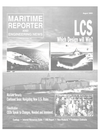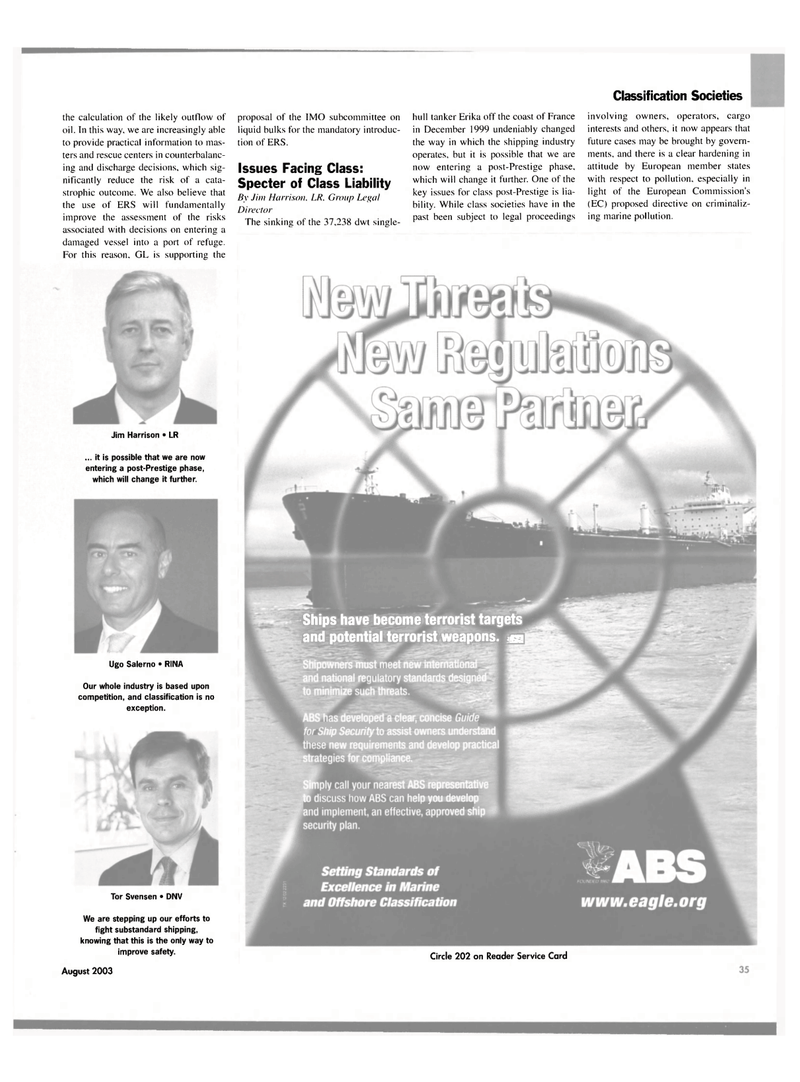
Page 35: of Maritime Reporter Magazine (August 2003)
Read this page in Pdf, Flash or Html5 edition of August 2003 Maritime Reporter Magazine
Classification Societies the calculation of the likely outflow of oil. In this way. we are increasingly able to provide practical information to mas- ters and rescue centers in counterbalanc- ing and discharge decisions, which sig- nificantly reduce the risk of a cata- strophic outcome. We also believe that the use of ERS will fundamentally improve the assessment of the risks associated with decisions on entering a damaged vessel into a port of refuge.
For this reason, GL is supporting the proposal of the IMO subcommittee on liquid bulks for the mandatory introduc- tion of ERS.
Issues Facing Class:
Specter of Class Liability
By Jim Harrison, LR, Group Legal
Director
The sinking of the 37,238 dwt single- hull tanker Erika off the coast of France in December 1999 undeniably changed the way in which the shipping industry operates, but it is possible that we are now entering a post-Prestige phase, which will change it further. One of the key issues for class post-Prestige is lia- bility. While class societies have in the past been subject to legal proceedings involving owners, operators, cargo interests and others, it now appears that future cases may be brought by govern- ments, and there is a clear hardening in attitude by European member states with respect to pollution, especially in light of the European Commission's (EC) proposed directive on criminaliz- ing marine pollution.
Jim Harrison • LR ... it is possible that we are now entering a post-Prestige phase, which will change it further.
Circle 202 on Reader Service Card
Tor Svensen • DNV
We are stepping up our efforts to fight substandard shipping, knowing that this is the only way to improve safety.
August 2003
Ugo Salerno • RINA
Our whole industry is based upon competition, and classification is no exception.
Ships have become terrorist targets and potential terrorist weapons, m

 34
34

 36
36
